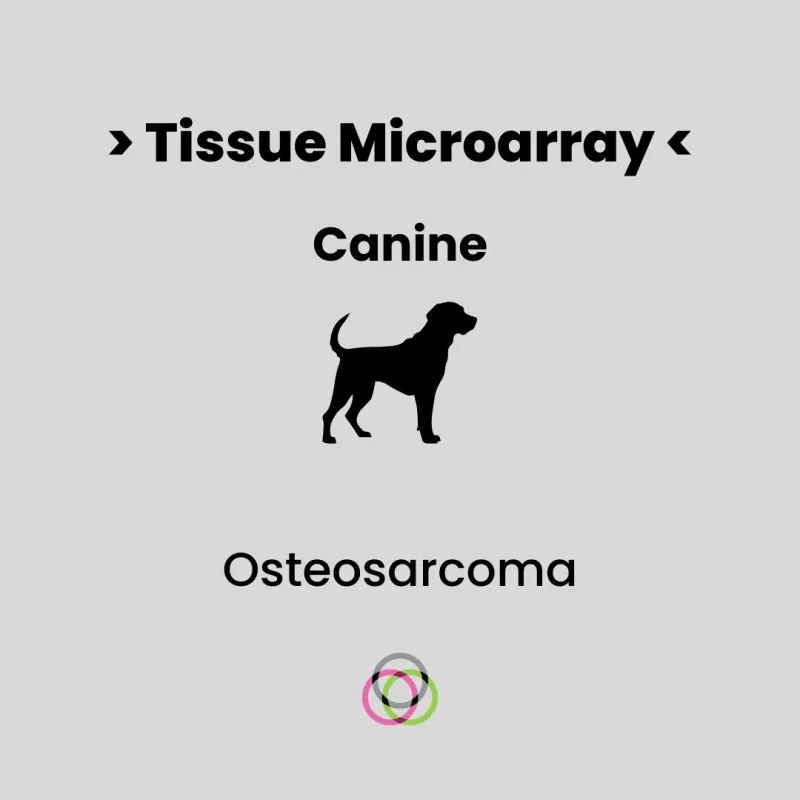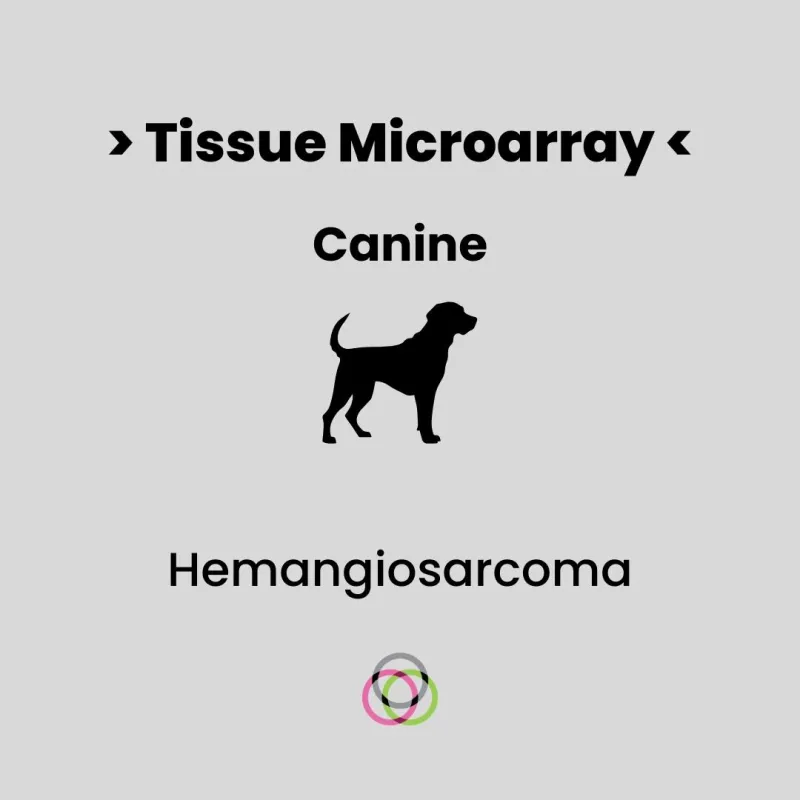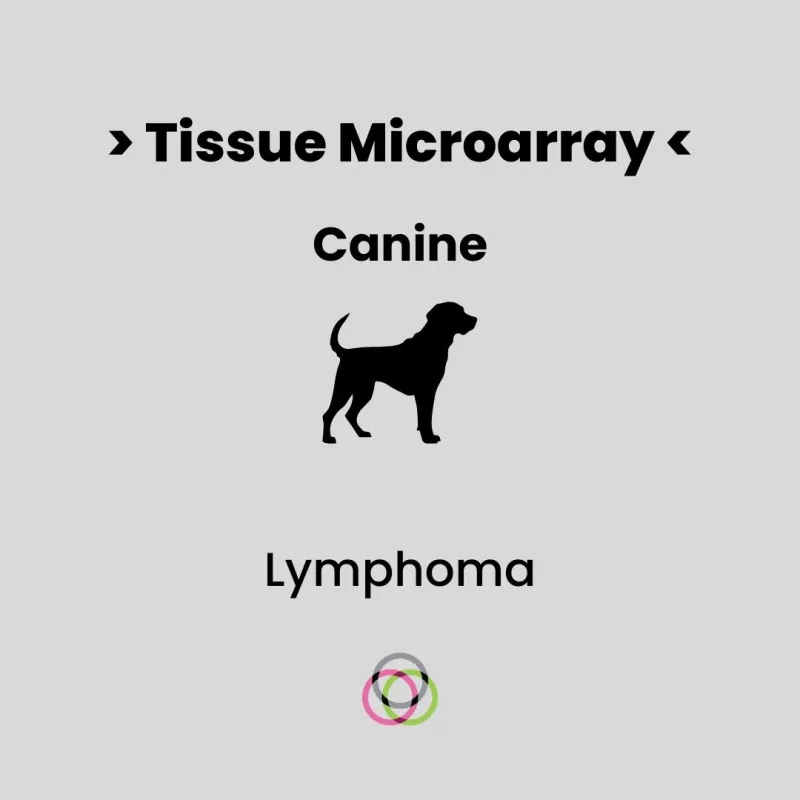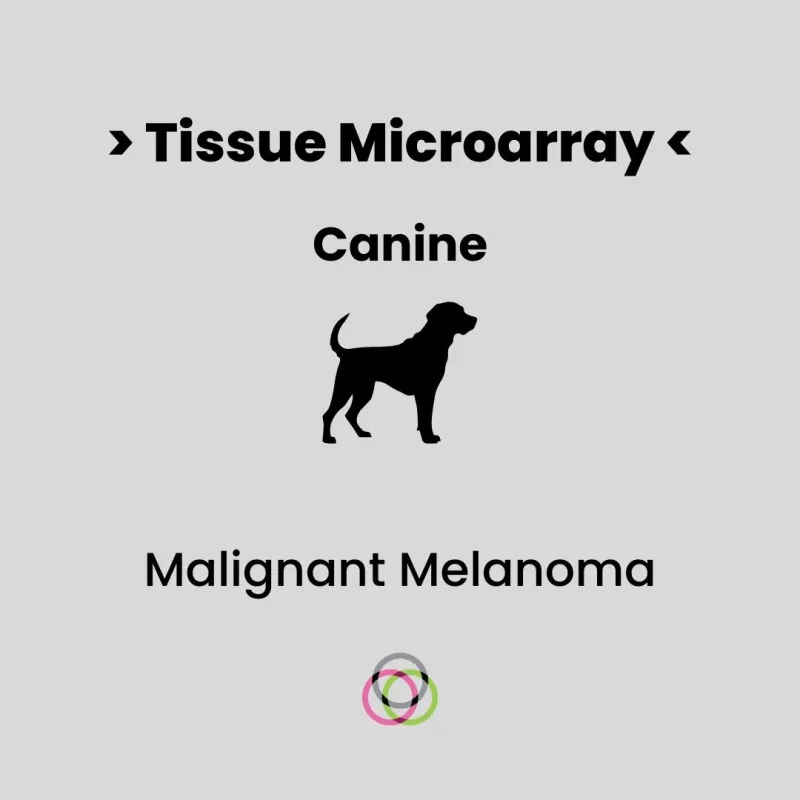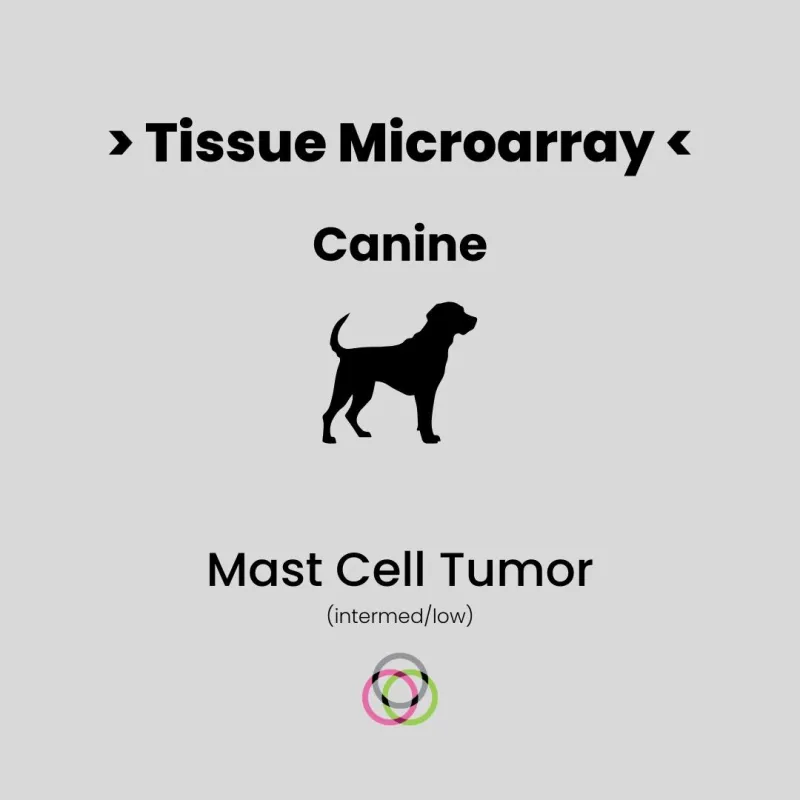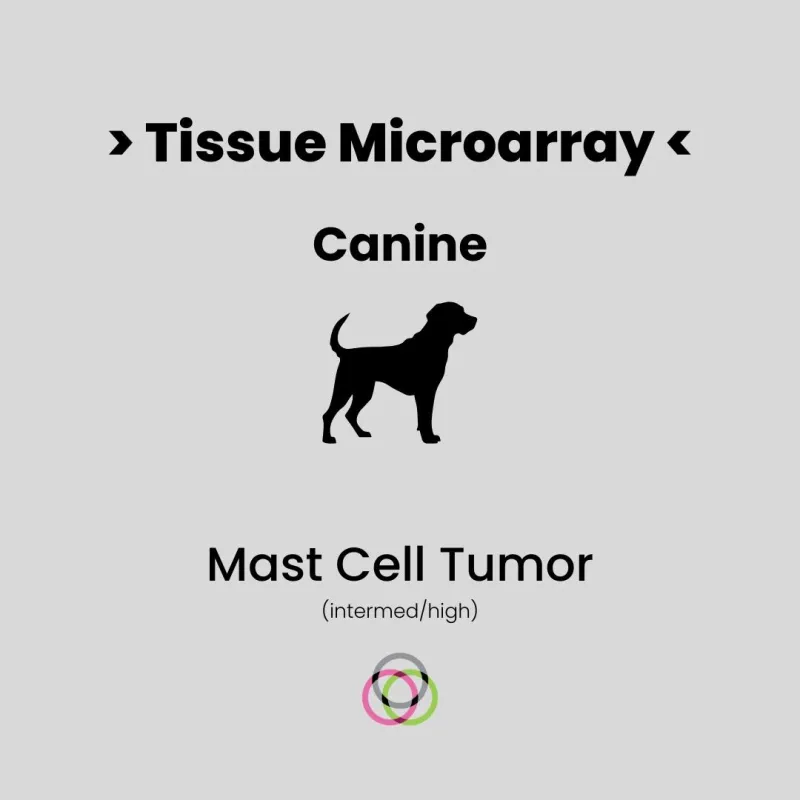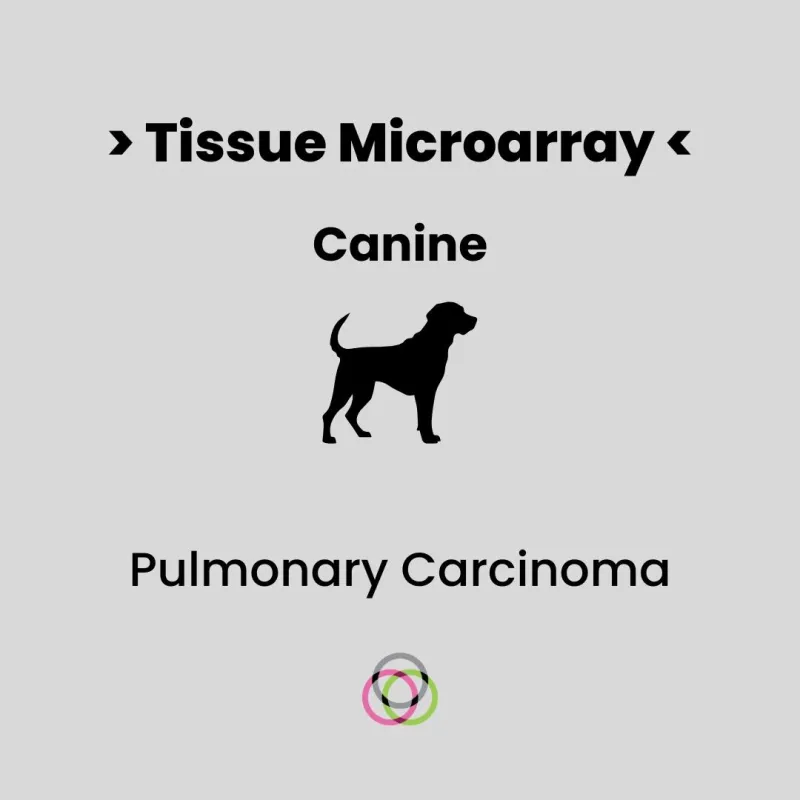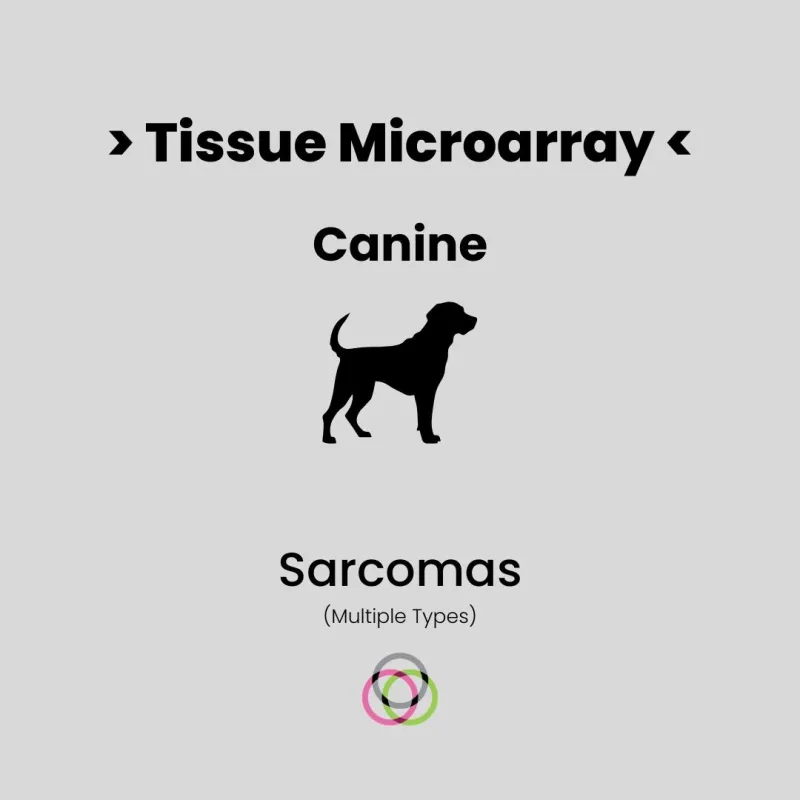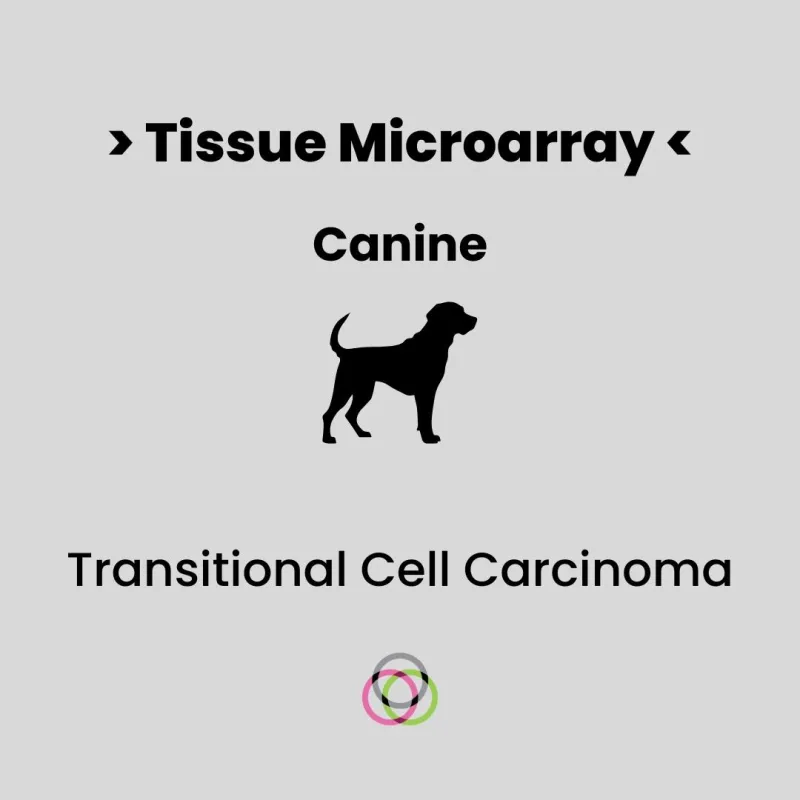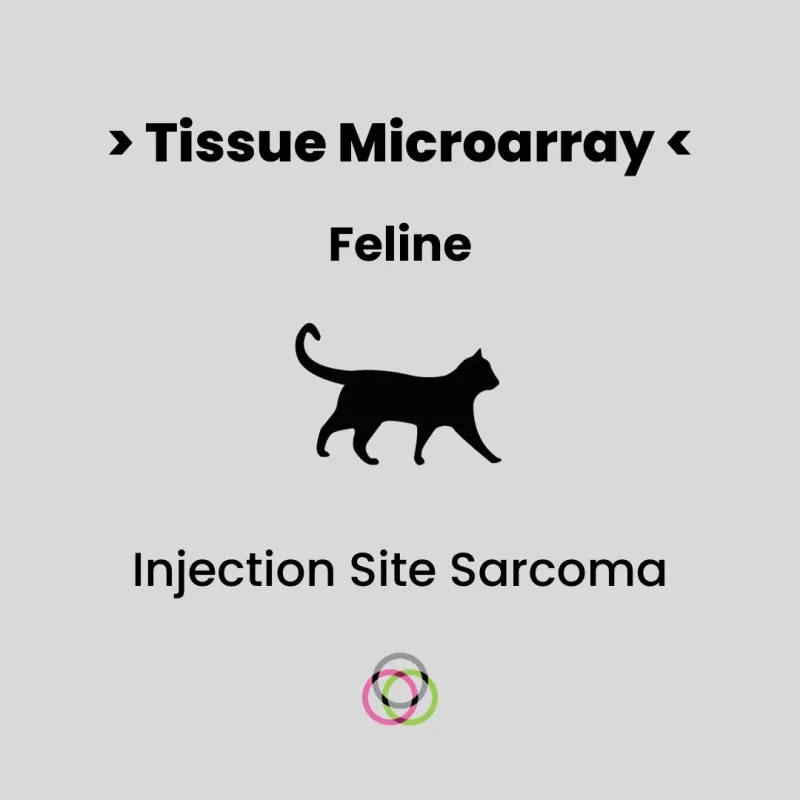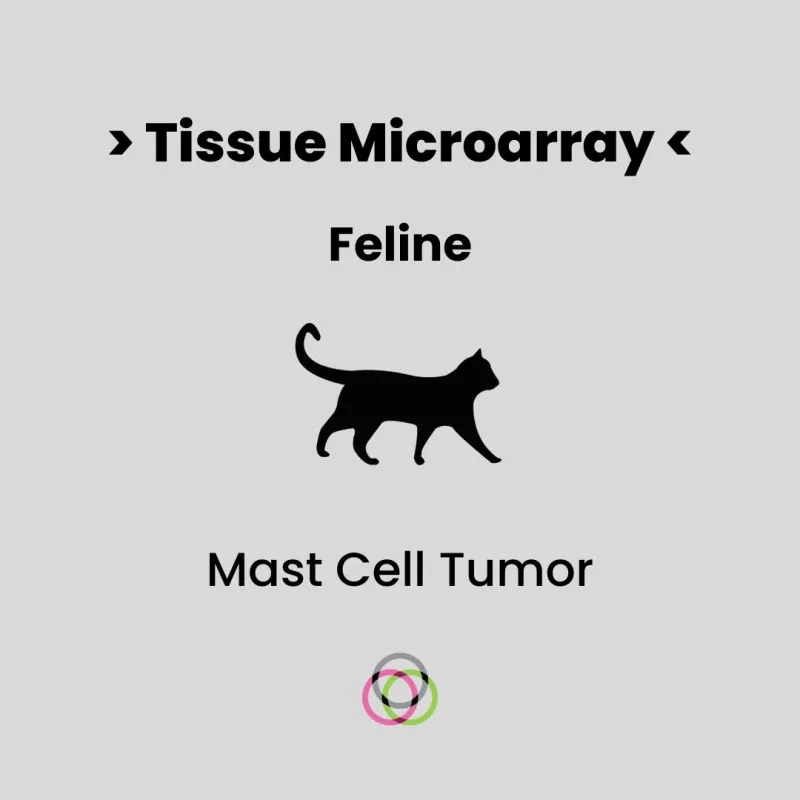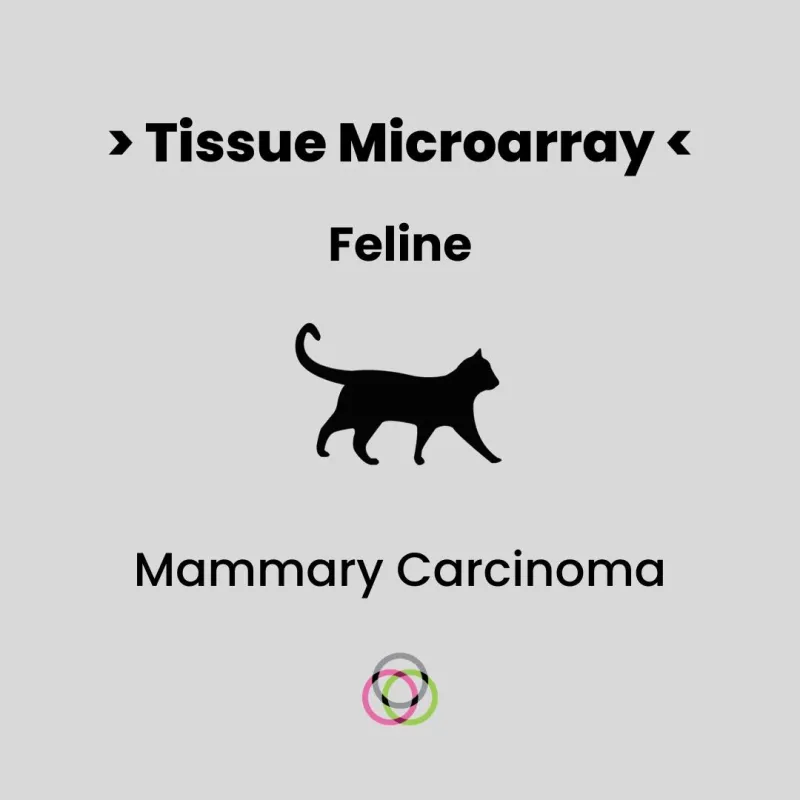Tissue Microarrays
Learn about Opportunities with TMAs and browse
our unique collection of veterinary tissue microarrays
What are Tissue Microarrays?
Tissue microarrays (TMAs) are paraffin blocks that contain dozens or hundreds of small tissue samples, assembled in single block, and thus able to be cut onto a single slide for high throughput analysis. TMAs can be stained and analyzed using a variety of techniques, including immunohistochemistry, fluorescence in situ hybridization of nucleic acids (FISH), RNA in situ hybridization, and histochemical stains, among others.
TMAs are a cost-effective, high-throughput research tool with significant advantages over conventional slide analysis techniques, including:
Conserving antibody usage - TMAs greatly reduce the amount of antibody and other reagents required for analysis on a large number of samples - as an example, for a TMA with 70 separate tissue samples, it would require 70 times as much antibody to run each sample on an individual slide.
Standardizing experimental assays - TMAs allow researchers to screen dozens or hundreds of examples of a single tumor or other sample type under identical experimental conditions, leading to stronger experimental results.
Amplifying scarce samples - TMAs allow preservation and maximum utilization of small and rare tissue samples
Common uses for Tissue Microarrays
TMAs have become a standard tool for tissue-based research and diagnostic programs and can expand resources and add value to any study utilizing immunohistochemistry and molecular techniques. A few examples include:
Cancer research: TMAs can help identify new diagnostic and prognostic markers in cancers, and can be used for studying the role of marker proteins in tumor initiation, progression, or metastasis.
Assay validation: TMAs can be used to characterize and validate antibodies in manufacturing and working up diagnostic assays and research applications with new antibodies
Quality assessment: TMAs can be used for quality assessment.
Drug discovery: TMAs can be used to assess the effects of experimental drugs in a test cohort at the cellular, protein, and/or molecular level
Included with our Tissue Microarrays
All of our tumor TMA slide orders include:
Patient Signalment
Diagnosis (& sub-type where applicable)
Tissue/site
Grade where applicable
Scanned H&E slide from TMA block
Custom TMA Construction
If you are looking to put together your own TMAs, SVP Research is here to help! Typically, TMAs are constructed using FFPE blocks provided by the researcher. We can work with you to ensure you get the highest quality block and slides including available pathologist review and consultation. Pricing is variable based on core count desired and includes a setup fee and a per-core transfer fee. Each TMA includes 1 H&E stained slide along with the block with the option of additional stained and unstained slides prepared prior to delivery, as desired.
Ready to explore options for leveraging your archives using TMAs? Click below to let us know and we'll be in touch!
©2026. Specialty Vet Path LLC. All Rights Reserved

